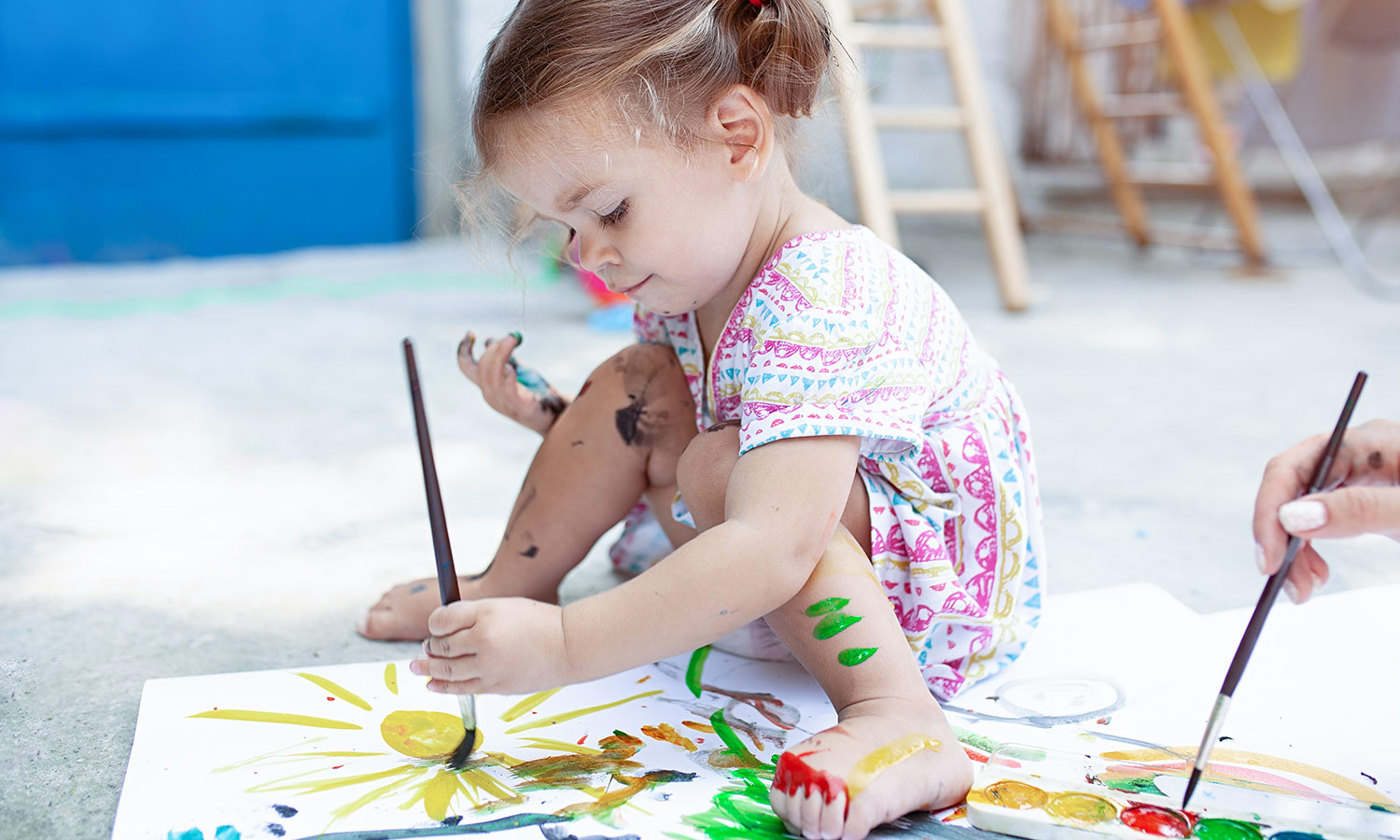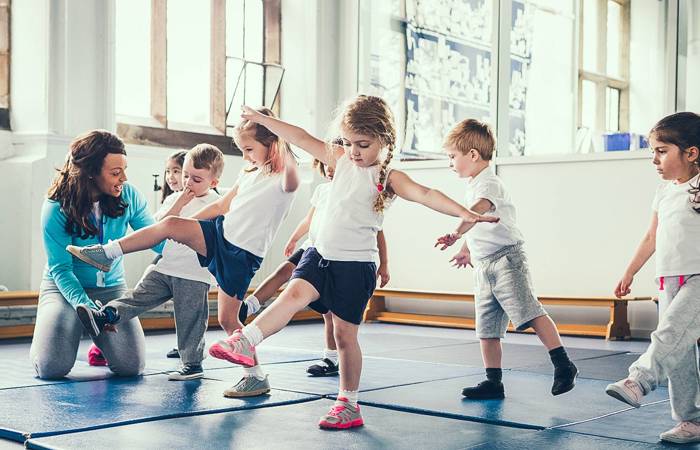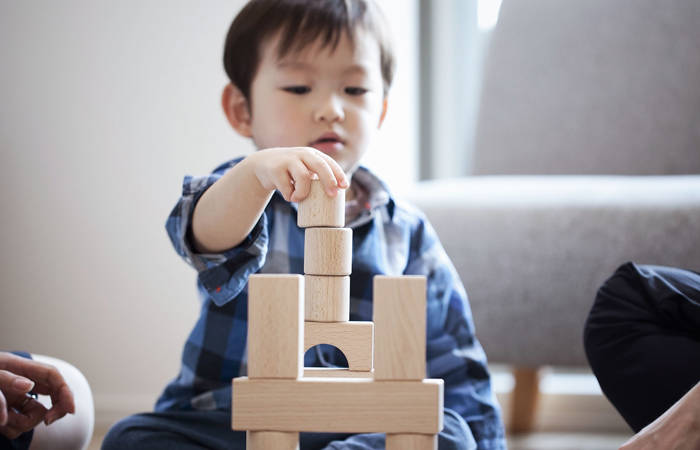Like what you see?
Sign up to receive more free parenting advice.
Thank you for subscribing to our newsletter!
Child Development

Credit: iStock.com/andreonegin
Our children start to form beliefs about themselves from as early as three years old. These beliefs – about their own intelligence, their talents and their abilities are known as mindsets, and together they influence children’s motivation, self-regulation and achievement.
By understanding how to work with mindsets, parents can play a role in helping our children develop beliefs that will support them through their early years and beyond.
Fiona Boylan from Edith Cowan University has been studying mindset in children for a number of years, including in her recent PhD.
“This belief system that we develop about our abilities explains how we are motivated; they help to explain our achievements, as well,” Fiona says.
Mindset theory was developed by researcher Carol Dweck. She wanted to know more about student attitudes to failure and why some students were more motivated than others to learn and came to the understanding that people can display a ‘fixed mindset’ or a ‘growth mindset’.
“When have a fixed mindset belief we give up easily and see effort as worthless ...‘It doesn't matter how much effort I put in, I’m never going to be able to change or get better at something’. That then tends to limit our opportunities, our achievement, and of course, limits our motivation as well,” says Fiona.
With a growth mindset we believe the opposite – change and improvement is possible – a belief that tends to motivate us to try.
“We don’t have to be growth mindset oriented for everything; that is not the case at all. But it is important to be able to recognise when we have a fixed mindset response, and to be able to understand that this belief may be holding us back from our achievements.”
Fixed versus growth mindset
The two mindsets aren’t mutually exclusive, explains Fiona.
“We aren’t one or the other. The two mindsets sit on a continuum. We can have a growth mindset about some things (often, our natural strengths) and a fixed mindset about others (often the things we aren’t naturally good at).”
Mindsets begin to show in children from age three and researchers know that both nature (personality) and nurture contribute to mindsets.
“However, there's so much we don't know about mindsets yet. But when you look at babies, and toddlers, most start out willing to take a chance and to have a go at things. We don't tend to see that helplessness, or the response of ‘I won't have a go, because I'm not sure if I can’. Once children get to about three years of age, that starts to change,” Fiona says.
“Their beliefs about their intelligence or learning abilities are influenced by the messages they receive from others about their abilities to do different tasks.”
If we want to change our mindset from ‘fixed’ to ‘growth’, there is good news.
“Mindsets can be developed and taught, which means we can actually change mindsets throughout our lifetime,” says Fiona.
When have a fixed mindset belief we give up easily and see effort as worthless ...‘It doesn't matter how much effort I put in, I’m never going to be able to change or get better at something’. That then tends to limit our opportunities, our achievement, and of course, limits our motivation as well.Fiona Boylan
Stay up to date with the latest news and articles from First Five Years
Thank you for subscribing to our newsletter!
Praise for effort - how parents can help their child’s mindset
Fiona points to a study by Professor Dweck and her colleagues (Heyman, Dweck & Cain, 19921) that showed just how important an adult’s response is to young children.
“They found that when kindergarten children made a mistake 94% of them weren't that concerned about it. However, if adults criticised them the children started displaying what is called a helpless reaction, saying things like: ‘I give up. I can’t do it, or no matter how much I try I am never going to be able to do it.’
Once they start getting feedback about the mistake, they start to change their beliefs about themselves. And what they said is that they were feeling bad – they linked this fixed mindset to giving up in the face of criticism,” says Fiona.
Helping a child embrace a growth mindset can also come from offering praise. But the key here is to offer the right type of praise.
“A study looking at the relationship between parents and primary school aged children showed that praise for effort, when spontaneously provided by parents or educators, can really help their mindset (Gunderson et al., 20132).
“Praise for effort is called process praise, and that’s the kind of praise we want to use with children. We should praise the effort rather than the natural ability. If they are working on running it would mean saying, ‘I can see you’re getting faster because you’ve been doing some practice in the backyard’,” says Fiona.
Associate Professor Lennie Barblett agrees as she says, “Often praise can come in the form of cheerleading but as Fiona says telling children what they did well that leads to improvement is key.”
Why a parent’s own mindset matters
If a parent displays their own growth mindset it can provide benefits for their own child’s confidence and believes in themself.
“We know that parents demonstrating those growth mindset qualities are really providing a role model to children. That means as parents we need to be talking about making mistakes and setbacks to learning, and how you get over that.
“We also need to be seen asking for help. When I was teaching, I used an example with the children about when I learned to do the yoga tree pose. I explained how I kept falling over and couldn't do it. I also explained that I wanted to give up, because that's actually what my fixed mindset was saying but I decided, ‘No, I was going to use my growth mindset towards it, and I thought about some strategies that I could use that would help me.’ I tried starting by leaning on a wall, and then slowly moving away as I got my leg up a bit,” Fiona says.
Not only should we show our children our own mistakes, but we need to allow them to do the same.
“Children growing into the 21st century are required to be flexible and adaptable learners so a growth mindset will be an asset,” says Associate Professor Lennie Barblett from Edith Cowan University School of Education.
“As parents we want to protect our children from mistakes and setbacks, but children need to know they can make mistakes, try new strategies and practise while they are learning something new. We can suggest ways to resolve that mistake. That gives them a neurological benefit, as the neurons in our brain form new pathways when we learn something and strengthen after lots and lots of practice.”
The payoff for our children, and us as parents, can be enormous.
“Research has shown that when children have a growth mindset they are more motivated, have better self-regulation skills, higher levels of achievement and tend to have better social emotional skills overall," A/Professor Barblett says.
"It seems that the problem solving that comes with developing a growth mindset tends to build children’s confidence and motivation. They become better at accepting mistakes and setbacks as part of the learning process helping them to become a lifelong learner.”
[1] Heyman, G. D., Dweck, C. S., & Cain, K. M. (1992). Young children's vulnerability to self-blame and helplessness: Relationship to beliefs about goodness. Child Development, 63(2), 401-415. doi:10.1111/j.1467-8624.1992.tb01636.x.
[2] Gunderson, E. A., Gripshover, S. J., Romero, C., Dweck, C. S., Goldin-Meadow, S., & Levine, S. C. (2013). Parent praise to 1- to 3-Year-olds predicts children's motivational frameworks 5 years later. Child Development, 84(5), 1526-1541. doi:10.1111/cdev.12064.






